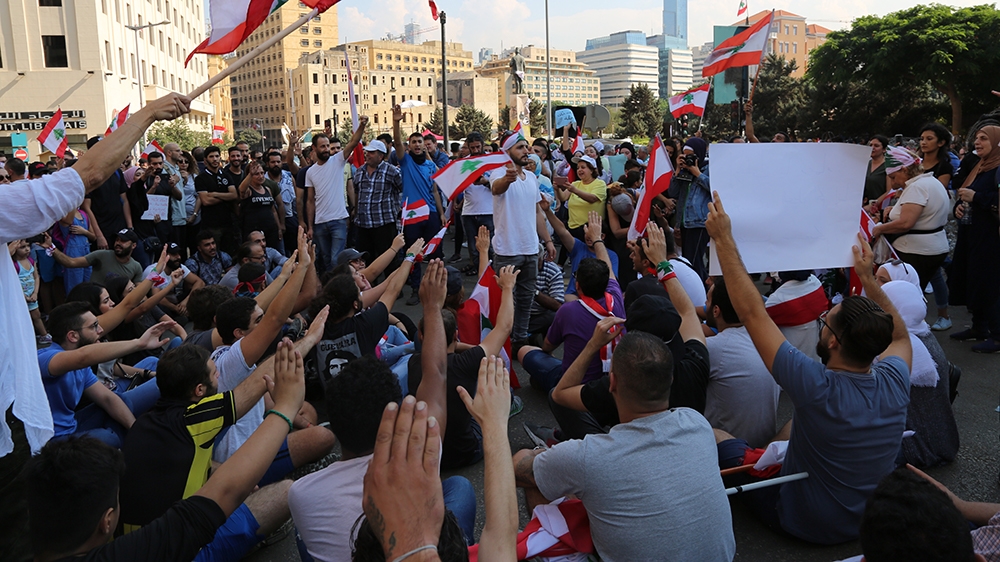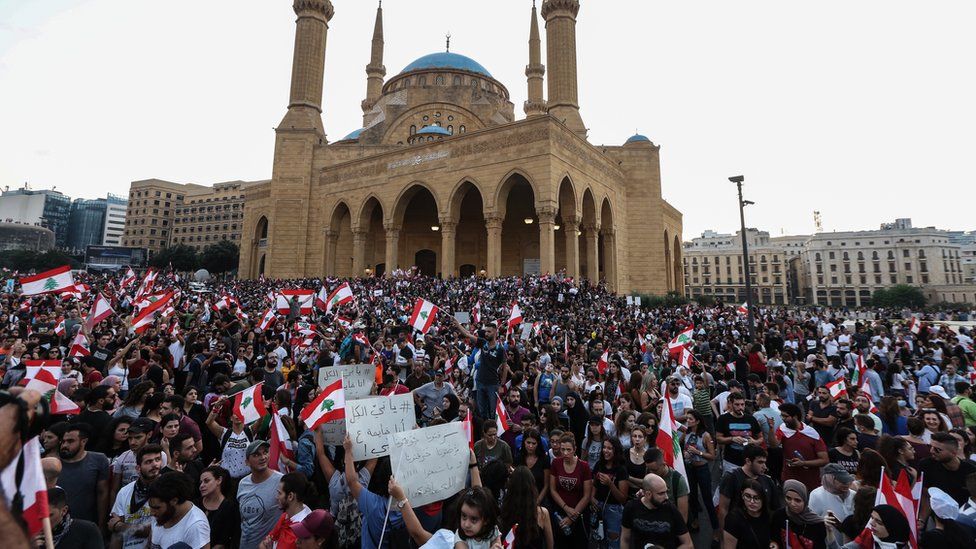Before Covid-19, yes before, when the people of Lebanon met the fate of switching from a ‘meat and vegetables’ diet to an only-bread diet, no one knew that in just a year, 4 out of 6 million of them would run out of not only bread but water, too.
UNICEF, the helping hand for Lebanon in its health, fuel, and water crisis, reports that 71% of the people are facing a critical water crisis, estimating the whole water pumping system to cease completely in 4 to 5 weeks.
It warns, unless some serious measures are taken by the people in power, by aligning in a line to form the govt and revive the system, besides public health and hygiene becoming a question, the country’s women and adolescent girls will wake up to the concern of sanitation and dignity in taking care of their biological challenges.

It seems to be all about water, but basically, it’s about fuel, which further gets more basic to politics.
The daily war
According to UNICEF’s reports on Aug 22, 2021, the country’s power grid has collapsed and there is no fuel to run the water pumping system, generators or any other machinery. The people have been experiencing long-term power cuts for several months, resulting in the halt of business and transport, which catalysed the decline of an already suffering economy and plunged 80% of the country into poverty.
All these reflected in people’s routine that food, medicines, clothing, and essentials have become a daily pursuit, and now water, too. Despite living in a country with sufficient oil and gas reserves, they have to pay Rs 312/litre for petrol and Rs 240/litre for diesel, and drinking water is now 8 times the cost it was two years ago.

Even if they have managed to bake bread with the daily 3-hr-long power availability, running vehicles to distribute it becomes the question. Public transport has ceased long before, and people buy gas for their vehicles from black markets, which has affected Lebanese pound value against US dollars, increasing the country’s foreign debt.
Shattering events one after another
Unlike most other countries, in the last two years, Lebanon was tragically busy with more than the Covid-19 crisis:
1. Wildfires in the western mountains of the country in Oct 2019, which earned public criticism for the govt when rescuers tried to control the fire using water cannons of riot police vehicles, instead of fire-fighting aircraft.
2. People’s nationwide protest in Nov 2019 against the tax levied on Whatsapp calls, part of govt’s hasty plan to tackle the Lebanon pound losing value against US dollars. This became the breaking point for the dissatisfied citizens to come to the streets.

3. As a consequence of this anti-govt protest, PM Saad Hariri quits, after which the currency value went even down, straight opposite to what the govt planned.
4. Given the poor public and health infrastructure, the advent of the Covid-19 in the following month, though kept people from protesting, shattered the lives of people and aggravated the low-performing economy.
5. Beirut explosion in Aug 2020, whose video startled the whole world, killed over 200 people and injured nearly 7000 lives. Destructing most areas of the capital city, the event added to political pressure, causing PM Hassan Diab to resign, who was hoped to be the saviour after Hariri quit last year.
6. Again, in Oct 2020, Hariri was appointed to form the govt, but only to resign in July 2021, after eight months of failure to form the govt, a failure he ascribes to President Michel Aoun, who in turn blames Hariri. This stepping down of PM caused the Lebanese currency value to reach the all-time low of 21000 pounds to 1 US Dollar, which was 1500 pounds in 2019.

The economic crisis the Mediterranean country faces now is the worst in the last two hundred years, the World Bank says, giving it a political name “Deliberate Depression”, a perspective that prompts us to look into the “political deadlock” of the country, the way experts put it.
What’s so problematic about the political system?
To begin with, a common criticism people have about Lebanon’s power-sharing model is its sectarian politics, called confessionalism. The constitution recognizes 18 religious communities, 4 Muslim, 12 Christian, the Druze, and the Jews, of which 3 are considered to be the majority to have representations in the Parliament:
- The President represents the Maronite Christians, Michel Aoun.
- The Prime Minister represents the Sunni Muslims, Najib Mikati.
- The Parliament Speaker represents the Shia Muslims, Nabih Berry.
The 128 seats of the Parliament are also given proportionally among the sects. After Lebanon got its independence from Free France in 1943, the leaders thought this way of power-sharing would prove a balanced reign. On the contrary, though this model initially appeared to have worked, it was only a bubble of religious conflicts—among Christians, Muslims, and the Druze—being blown for decades to finally break into a civil war, called the Lebanese Civil War, dating from 1975 to 1990.

Though it was a war among the majority religions fighting for their power and influence, each had its own support movements, all of whom were further joined by socialists, communists, and other militias, along with foreigners Israel and Syria, fighting the war historians call today as one of the most complex conflicts of the 20th century.
After the war ended by the Taif Agreement in 1989, the leaders of each sect ruled, but only to secure the interests and benefits of the communities they represent, which made the whole system rife with corruption among all levels, adding Lebanon to the list of most corrupt countries, and brought the population under poverty.
When the line between religions blurred
This protest, which happened in late 2019, earned global attention as there was unity among people of all religions in opposing not any particular leader but the whole sectarian system, unlike the 2005 protest, erupted on the assassination of then PM Rafik Hariri, where people were divided as sects and rallied against each other.
This change in people’s psyche of gathering across identities was observed to be a potential shift in Lebanon’s political flow. However, in the two years (2019-21) that followed, leaders were stepping up showing hope, couldn’t do any good, and stepping down after months, which only added to the above-listed tragedies.
All contributed to keeping the people busy with suffering, which has now come to the extreme of forgetting everything else but water.

UNICEF, which is on the ground offering life-saving services, like providing people with food and essentials and vaccinating in response to Covid, urges the authorities to restore the power supply, only which can activate the water pumping system.
But, besides these helping hands like UNICEF and temporary funds and fuel from foreigners, a substantial measure that can nourish and uplift Lebanon is possible only if a govt is formed.
The newly appointed PM Najib Mikati, about whom people have mixed opinions on whether he will be able to lift Lebanon from its crisis, says he doesn’t have any magic hands to change the reality dramatically, implying the need for fellow leaders’ consensus and cooperation in doing something revolutionary, unfortunately, which is what the country’s problem for 70 years.
India and Lebanon
The rest of the world blaming Lebanon’s sectarian rule system may appear to be a cliche, but by setting Lebanon’s history of independence in the backdrop of India’s, this global opinion makes sense.
In any period of history, when the long-ruling power leaves the nation to its natives, people wake up to sudden freedom that will surround them with a huge responsibility, which happened for both Lebanon and India when the colonial powers handed over the nation to them.
The Systemic Failure
In Lebanon, it was in people’s best interest and good intent, the three majority religions were given representatives each, a model which they believed to encompass the welfare of everyone. But, not before a long time, the other sects felt Maronite Christians were experiencing an upper hand, which gave the start for everything disastrous to date.
And still, all the leaders so far, up to former PM Hariri and President Michel Aoun, aren’t able to set up a govt keeping aside their communal concerns and insecurities, which implies that the system, regardless of the people in power, is fundamentally a failure for any leaders to execute their goodwills though they want to.

A land of Gandhi
But India inspiringly differs here, perhaps because of Gandhiji. While Jinnah claimed a part of British India and led millions of Muslims towards that share of land, which is Pakistan now, it was Gandhiji’s explicitly credible secular spirit that gave hope and reason for millions of other Muslims to choose India as their nation.
Moreover, the Indian political system was given secular stability when Muslim leaders were given positions of power, which inspired a sense of inclusivity across the new India.
Conclusion
However, apart from the absence of Gandhism, there can be many reasons from demographics, culture, values, natural calamities to foreign influences for Lebanon to not have been blessed with a destiny of peace like India, relatively. So, rather than getting so communal about it, it is the technical failure of the system, which only under revamping can save remaining Lebanon.
Also Read: Alitalia, An Italian Flag Carrier Airline Shuts From October 15th Onwards











